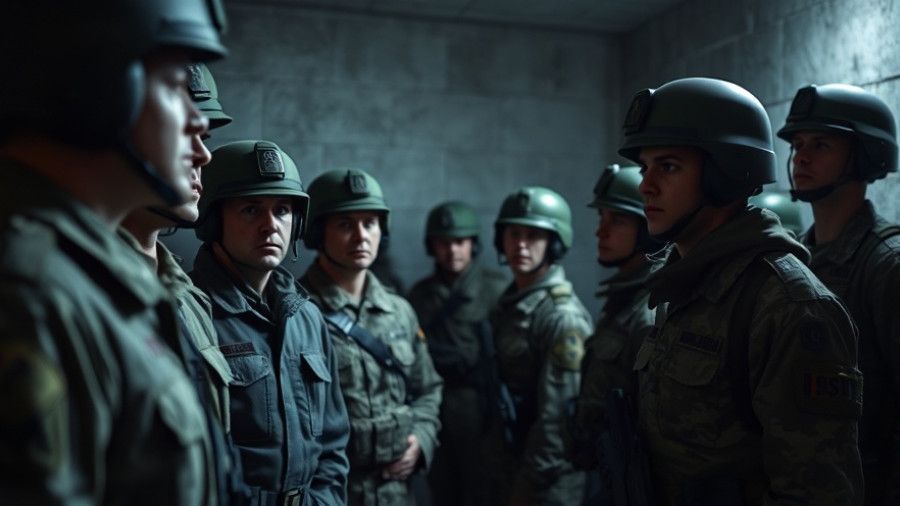
Unveiling the Uncertainty of Gaza's Command Center
The newly established Civil-Military Coordination Center (CMCC) in Kiryat Gat has sparked discussion and interest from various quarters, drawing high-profile visits from American officials and representatives from multiple nations. However, the specific role this center plays in furthering Israel's objectives in Gaza remains ambiguous, fostering questions about its effectiveness and intentions.
The Multinational Approach: Who’s In Charge?
The CMCC aims to act as a hub for coordinating international efforts, especially during the ongoing ceasefire. It hosts military representatives not just from the United States but also from countries including Britain, Canada, Germany, and Denmark. This multifaceted approach is designed to bolster stabilization efforts in the region, but it also raises concerns about the actual chain of command and legal framework governing the center's operations. Many fear that differing objectives among coalition members could inhibit effective decision-making.
The Humanitarian Angle: A Double-Edged Sword
While the presence of international military personnel is meant to facilitate humanitarian aid and security assistance to Gaza, it also exposes potential pitfalls. Opinions vary on whether this involvement truly serves humanitarian purposes or if it is a strategic maneuver to avoid direct conflict engagement. The notion that aid operates independently of political influence is increasingly scrutinized as international attention intensifies.
The Role of the U.S. in Regional Politics
The center's establishment marks a shift in U.S. diplomacy regarding the Israel-Palestine conflict. The Biden administration has pushed for broader international coalitions to monitor ceasefire implementations, placing its diplomacy at the forefront of discussions to rebuild Gaza. As American officials emphasize their commitment to regional peace, skeptics question whether enhanced oversight translates into any meaningful progress toward a resolution.
Future Implications: What Lies Ahead?
The uncertainty surrounding the CMCC's operation raises significant considerations for future policy and governance in Gaza. The prospects for a technocratic government, as envisioned by U.S. proposals, hinge on the successful disarmament of Hamas and a stable transition of power. However, the fluctuating relationship between Israel and various international stakeholders complicates these efforts, making predictions challenging.
Diverse Perspectives: Opinions Matter
Amidst the geopolitical maneuvering, the voices of ordinary Palestinians are often overshadowed. Social justice advocates highlight that understanding the human impact of these strategies is crucial. The views of those directly affected by the ongoing conflict remain vital to shaping holistic policies that prioritize human rights and substantial peace.
The Call for Advocacy and Awareness
As the complexities of Gaza’s political landscape evolve, it is essential to hold both local and international actors accountable for their commitments to peace and humanitarian efforts. Engaging with this topic through advocacy and awareness can empower individuals and communities, leading to a more comprehensive understanding of the human experience in conflict zones.
Call To Action: It’s time for engaged believers and advocates to unify efforts that promote peace in Gaza. By understanding the intricacies of the CMCC and its implications, you can advocate for justice and support humanitarian initiatives effectively, ensuring that the needs of vulnerable communities are front and center.
 Add Row
Add Row  Add
Add 








Write A Comment